By Elsa Demo
Memorie.al / Searching through the files of the first half of the 20th century, archival documents in the Central State Archives, for a figure who had an important role as an intellectual and diplomat of this time, his name was also found inside the covers where the correspondence of Father Gjergj Fishta is kept, from 1931 until the end of his life. The envelope of the head holds two letters inside, which the Franciscan cleric had sent to Benito Mussolini and later to the same powerful man, the head of fascism, the self-proclaimed Duce. The first letter is sent from Livorno in 1934.
It is written in Italian, sometimes with words not of today’s Italian, which we are publishing for the first time translated, trying to bring it into a Geg variant. The fact that makes the publication of this letter interesting is the request of Fishta (1871-1940), starting from the positions of writer and cleric. Feeling that he did not have much time left to live, he asked Mussolini to publish his work in full and “presentable”, something that neither the Franciscan Order nor the Province of Fishta could do. And the income from the sale of the work would go to this province.
By that time, the Albanian scholar had almost closed the cycle of his entire creativity, despite subsequent revisions. The request consists of publishing all seven volumes of the work, which include the epic poem “The Lute of Malcia”, lyrics, drama, political and social satire, prose, translations from the Iliad, Moliere, etc. Benito Mussolini, the man who first proclaimed fascist ideas, would engage well-known Italian intellectuals, artists and writers from the time these ideas were made public. His greed as a writer and journalist was well-known.
In the beginning, he had worked as editor of the Milanese socialist newspaper “Avanti” and in 1915; he created his own newspaper “The People of Italy”. So he had a career as a journalist and began to develop the ideas that became known as Fascism, until March 1919, when he created the National Fascist Party. The mid-1930s were prosperous for the popularity he gained among Italians. The first thing that made Mussolini an Italian hero, giving echo to his name and role in the international arena, was the conflict in the border area between Greece and Albania. He began his representation in this area in the International Commission and in August 1923, all the Italians were found killed in Greek territory.
We recall that in this time frame of the 1930s, Father Gjergj Fishta was in Italy, as he was persecuted by the regime of King Zog. In the letter of April 27, 1940, which, like the first one, also bears the corresponding fascist year, the XVIII year, he addresses the now Leader – Duce from Rome. In this short letter he writes to Prof. Gino Bottiglioni, of the University of Bologna, who at that time had been called by the Italian Academy – a member of this Academy Gjergj Fishta became in 1939 – charged with the mission of promoting studies in all fields of knowledge and of guiding young students.
“Our Center for Albanian Studies would like a visible impulse from the professor of the University of Bologna, where, on his initiative, a group of young people is being organized, particularly dedicated to Albanology”. For this, Fishta “dare” to address the Duce and his “enlightened judgment”, to find a way to further push this initiative. The file of Fishta’s correspondence contains only the letters he sent and it cannot be said whether these two requests-prayers ever received a direct response from the head of fascism.
The third letter is perhaps more interesting than the first two, as the reason for the prayer addressed to Francesco Jacomoni, the Viceroy of the Italian King of the Albanians, Victor Emmanuel, is the salvation from the wave of the Holocaust on the eve, the Albanologist Norbert Jokl. This founder of modern Albanology, professor at the University of Vienna, had already published “Studies on the Etymology and Word Formation of Albanian” and “Linguistic – Cultural-Historical Research in the Field of Albanian”. He had close ties with Albanian intellectuals of that time Faik Konica, Aleksandër Xhuvani, Ernest Koliqi and Gjergj Fishta.
It is said that in 1937, he had visited Albania only once, where on the occasion of the 25th anniversary of the declaration of independence, he was honored with the “Order of Skanderbeg”. And now under Hitler’s terror, Albania was seen as a place of his salvation, due to his Jewish origin. For this reason, it is known that Albanian intellectuals did their utmost to help him. In October 1941, Ernest Koliqi wrote a letter to the Albanian consul, Nikollë Rrota in Vienna, informing him that he had hired Professor Jokl as the organizer of the libraries of Albania, with a monthly salary of 600 gold francs. The Albanologist was thinking of going to Albania and taking his personal library with him.
From Fishta’s letter we learn that Albania was indeed the country that was willing to shelter him, but Jokl wanted to leave for America. The letter to Jacomoni, sent from Shkodra, is dated September 23, 1939. Albania was occupied on April 7, 1939 by fascist Italy. On April 12, Victor Emmanuel III was proclaimed King of Albania and the Albanians and Francesco Jacomoni (former Italian ambassador to Albania) became his Viceroy, with whom the new Albanian government under the leadership of Shefqet bey Vërlac signed a series of agreements. This was the situation in the country when Jokl’s rescue was sought. The end is tragic. This man was arrested by the Gestapo on March 4, 1942, in his Vienna apartment. This same year is marked as the year of the Albanologist’s death.
Fishta’s Letter to Benito Mussolini
Livorno 10 July 1934
12 Via delle Galera
His Excellency
Benito Mussolini, President of the Enlightened Royal Government of Italy, Rome
Your Excellency, in the long period of forty years of religious and cultural activities in Albania, the one to whom I am writing has produced a literary work in the Albanian language, which, divided according to the nature of the form and the different types of arguments treated, would be included in seven volumes, in sixteen formats – six in verse and one in prose – with an average of 300 pages each. I, at my age, would love with all my heart to see this work reprinted, in a homogeneous and presentable edition.
Neither the Franciscan Order nor our Province has the means for this purpose at present. With confidence, therefore, I address myself to your Excellency, begging that this Enlightened Royal Government of Italy, with its high generosity, will kindly grant me the necessary income for the reprinting of this literary work. The work will be printed in Italy and can be delivered within eight months. Since in this way the price of the work could be reduced, it could be distributed more widely among the Albanian people.
All material income that may derive from this publication will be paid exclusively to the Franciscan Province of Albania, which is in great need of assistance. Both the Franciscans and the intellectuals of Albania will keep in eternal memory this generosity so high, which I confidently ask the enlightened Royal Government of Italy.
As I write to you, you’re Excellency
I thank you
Father Gjergj Fishta
Giubilato Reader and Definitor of the Province of Albania
Letter to Francesco Jacomoni
Shkodër, September 23, 1939
XVII
To His Excellency, Francesco Jacomoni, Viceroy of Tirana
You’re Excellency
Considering that the best living philologist of the Albanian language in Europe is Professor Norbert Jokl, of Jewish nationality, who before Auschwitz was the librarian of the University of Vienna and professor of Philology at the same university, I am now writing to me from Vienna that the local authorities have notified this distinguished Albanologist to leave the territory of the Reich within 30 days.
He is now unmarried and of humble fortune. For this, of course, the best must be done to find him a place, wherever it may be, to live. It seems that he wants to move to America.
Excellency, it would undoubtedly be a grave disaster for the Albanian national language if this scholar, of European fame – whom I know well and who, with unquestionable authority, has kept the interest of the most distinguished philologists in the Albanian language alive – were to leave Europe by accident!
The entire Albanian nation would be immensely indebted to you if V. E. could find the path to bring him to Albania, to attribute to him a task, although not very rewarding, compared to his fame as a noble scientist and philologist.
With full conviction that you will judge with humane interest this proposal of mine – which I feel compelled to advance, on behalf of all Albanian intellectuals, I take this opportunity to ask you to accept the feelings of my most sincere esteem and deep gratitude./ Memorie.al
Devoted believer
Father Gjergj Fishta




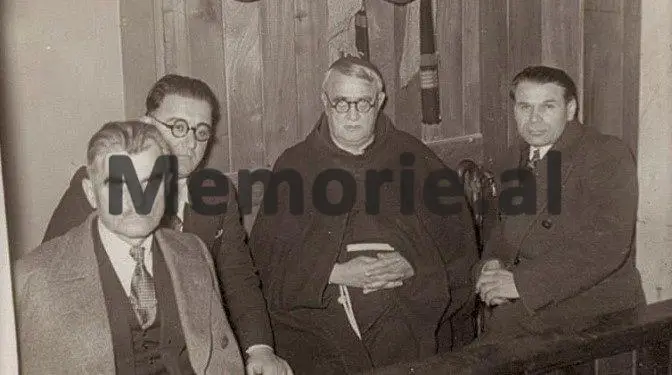
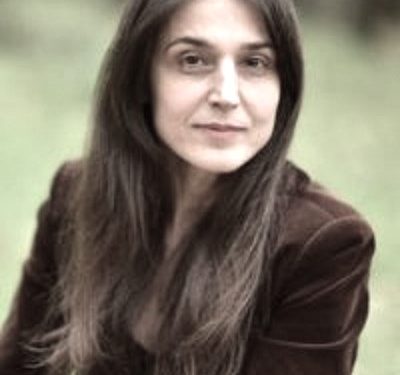
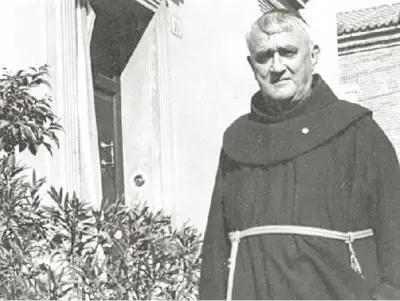
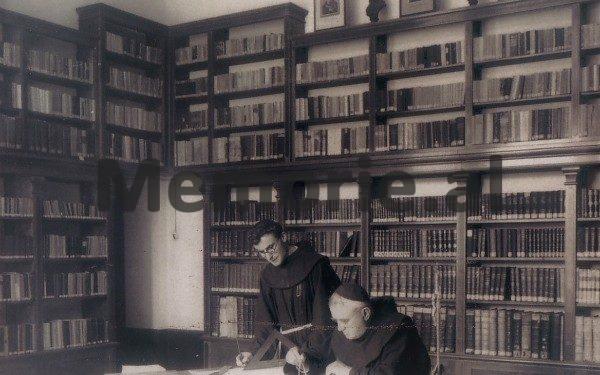

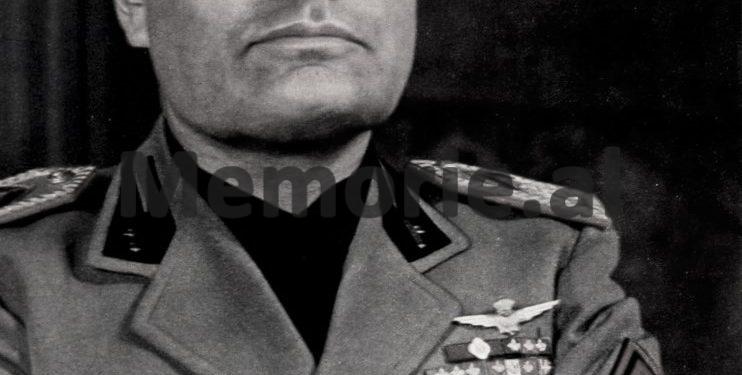
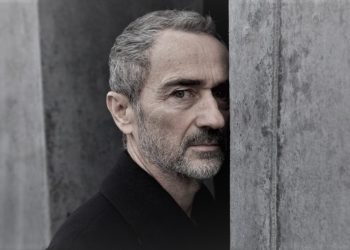
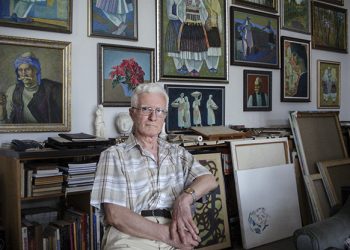
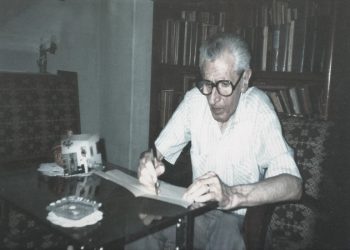
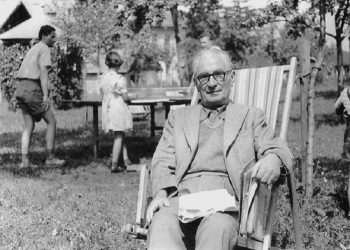

![“Count Durazzo and Mozart discussed this piece, as a few years prior he had attempted to stage it in the Theaters of Vienna; he even [discussed it] with Rousseau…” / The unknown history of the famous Durazzo family.](https://memorie.al/wp-content/uploads/2026/02/collagemozart_Durazzo-2-350x250.jpg)
